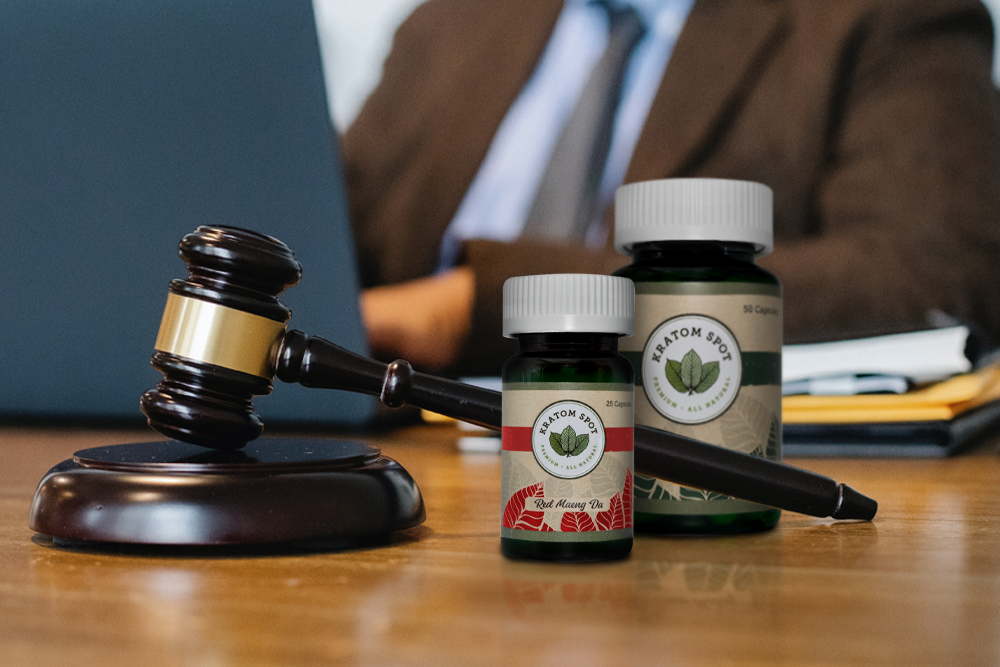
Let’s get one thing straight: kratom is legal throughout most of the United States. It helps a variety of people better their daily lives. Everyone should have access to safe, high-quality kratom products no matter where they live.
That’s not the reality of the kratom industry, however. There are many places within the U.S. where residents cannot purchase or possess kratom products. What states is kratom illegal?
- Alabama classified kratom’s primary alkaloids, mitragynine, and 7-hydroxy-mitragynine, as Schedule I narcotics in May 2016. This likens kratom to substances like ecstasy and heroin, an unjust misclassification.
- Arkansas banned kratom in February of 2016. In 2017, state medical examiners incorrectly stated that kratom’s alkaloids are derived from opium. It is unlikely we’ll see the Arkansas kratom ban lifted soon.
- Indiana outlawed kratom in 2014 but incorrectly listed the botanical as a synthetic cannabinoid. Legislature later amended their language, classifying kratom as a hallucinogenic substance, another misclassification.
- Rhode Island banned kratom’s alkaloids in 2017. Due to public outcry in other states, Rhode Island’s ban occurred in secret, confusing both residents and law officials. The state will vote on a measure to reverse the ban on September 1st, 2021.
- Vermont outlawed kratom’s alkaloids in 2016, but they were improperly classified as “synthetic drugs.” In January of 2020, lawmakers filed a bill to decriminalize kratom products, but kratom’s future is still uncertain in the state.
- Wisconsin banned kratom’s alkaloids in 2014, incorrectly associating kratom with both synthetic cannabinoids and hallucinogenic drugs. In 2019, lawmakers held informational meetings with the American Kratom Association (AKA), a step in the right direction.
So what about other states? For example: is kratom legal in California? Unfortunately, the answers to these questions are not so black and white. If your state isn’t on the list above, kratom still might be unavailable in your area.
Kratom Legality in California
Kratom is legal in the state of California. However, it is illegal in two cities within San Diego County:
- San Diego (population 1.41 million)
- Oceanside (population 176,000)
That’s over 1.5 million residents who cannot buy, sell, or possess kratom products in the state of California. However, residents of neighboring Orange, Riverside, and Imperial Counties have no issues acquiring legal kratom. In addition, the city of Chula Vista (population 269,000), seven miles south of San Diego and within the same county, allows for kratom use.
So back to the original question: Is kratom legal in California? For the majority of the state’s nearly 40 million residents, the answer is a resounding YES. For those 1.5 million residents living in parts of San Diego County, however, the answer is an unfortunate and misguided NO.
County-Level Kratom Bans
If kratom is legal everywhere else in California, why is it outlawed in San Diego County? Before we dive in, let’s set the stage: San Diego County is just one example of an intra-state kratom ban. There are other inner-state counties with kratom bans of their own.
- Sarasota County, Florida: kratom is legal in the state of Florida but banned in Sarasota County, which has a population of about 434,000. The penalty for first-time kratom “offenders” in this Florida county is 60 days in jail and a fine of up to $500. Sheesh.
- Franklin County, New Hampshire: kratom is legal in the state of New Hampshire but outlawed in Franklin County, which has a population of about 8,600. That might not seem like a lot, but we believe everyone deserves equal access to unadulterated kratom. When we say everyone, we mean everyone.
So why did San Diego County and other intra-state legislatures ban kratom? For starters, kratom is widely misunderstood.
The San Diego Kratom Ban, Explained
As we mentioned above, many state governments misclassified kratom as a synthetic cannabinoid or psychedelic drug. This shows that lawmakers are misinformed on kratom, perhaps stemming from the anti-kratom attitudes of the FDA and DEA, who have yet to make rulings on the botanical.
When it comes to California, specifically, check out the government-issued statement regarding the San Diego kratom ban:
The San Diego City Council approved an ordinance on Tuesday, June 14, 2016, that prohibits the manufacturing, sale, distribution and possession of spice, bath salts, kratom, and other synthetic and psychoactive drugs. Due to the threat these substances pose to the health and welfare of the public these laws became effective immediately.
No mention of kratom’s upside. No mention of public outcry following the ban.
Instead, San Diego flagged kratom as one of many “synthetic and psychoactive drugs” (a misrepresentation) and stated that kratom is a “threat…to the health and welfare of the public.”
Instead of asking, is kratom legal in California, maybe we should be asking: Why isn’t kratom legal in San Diego County? It seems the ordinance issued by local officials is insufficient (it’s only a single page) and does not explain how kratom is a “threat.”
Our Goal is Kratom-Legal States, Nationwide!
As members of the kratom industry, we don’t just sell kratom products. Instead, we consider ourselves visionaries, acting how we know the kratom industry should be. At Kratom Spot, our products are always:
- Made from premium grade, ethically Fair Trade-sourced kratom.
- Tested for contaminants, heavy metals, and adulterants.
- 100% all-natural.
- Free from additives or fillers.
- Certified GMP (Good Manufacturing Practice) products.
We call Southern California our home. Our goal is to see these kratom bans lifted in San Diego County and beyond! With your help, we can make that happen. The American Kratom Association (AKA) offers a variety of ways to get involved.
To help lift kratom bans in your state, or help keep kratom legal and safe, check out the AKA’s state-by-state legality guide here. You can always send them a direct inquiry to receive more information about how you can help.
Let’s build a better kratom industry, together!


